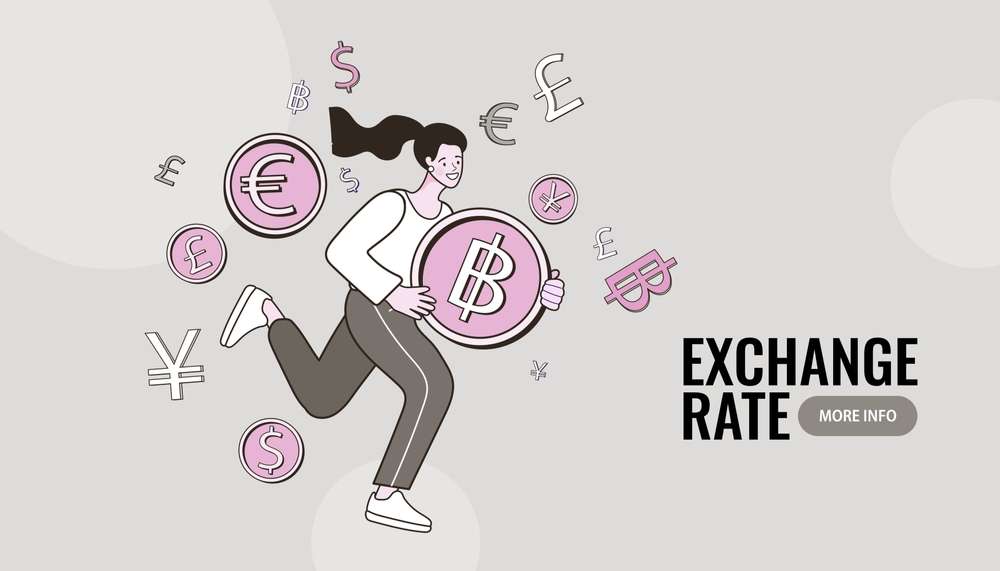Welcome to our comprehensive guide to currency exchange! As you prepare for your international travels or business transactions, understanding currency exchange is essential. This guide aims to be your trusted resource for navigating the world of currency exchange in Tri-City . From exchange rates to essential tips, we have got you covered!
Currency exchange can be daunting, especially if you are unfamiliar with the process. But with the right information and guidance, it can be a smooth and straightforward experience. Our guide is designed to help you make informed decisions and avoid common pitfalls. So, whether you are a seasoned traveler or a first-time exchanger, trust us to be your guide.
In the following sections, we will cover everything you need to know about currency exchange. We will start with the basics of understanding currency exchange, before delving into the factors that affect exchange rates. We will then provide practical tips on finding the best currency exchange in Tri-City and discuss specific recommendations for Indian travelers. We will also cover the regulations governing currency exchange in India and provide precautions to minimize risks.
Our goal is to provide you with the knowledge you need to exchange currency with confidence. We understand that currency exchange can be overwhelming, but we are here to help. Trust us to be your guide in this crucial aspect of international travel and trade.
So, let’s get started!
Understanding Currency Exchange
Currency exchange is the process of converting one currency into another for various purposes such as international trade, travel, or investment. It plays a vital role in the global economy, enabling individuals and businesses to conduct transactions across borders.
To understand how currency exchange works, it’s essential to know the basic concepts and terminology. The exchange rate is the value of one currency in relation to another, where the first currency is known as the base currency and the second currency is the quote currency. For example, if the USD/INR exchange rate is 74.50, one US dollar is worth 74.50 Indian rupees.
The currency exchange market operates 24 hours a day, five days a week, and is the most liquid financial market globally, with an average daily turnover of over $5 trillion. The market comprises various participants, such as banks, financial institutions, and retail currency exchange providers, who buy and sell currencies at different exchange rates based on supply and demand.
Understanding currency exchange is essential for travellers, investors, and businesses engaged in international trade to make informed decisions and mitigate risks.
Factors Affecting Exchange Rates
In this section, we will explore the various factors that influence exchange rates, including economic indicators, political stability, and market forces. Understanding these factors can help you make informed decisions and predictions about currency exchange rates.
Economic Indicators
One of the most significant factors affecting exchange rates is the economic performance of a country. Economic indicators such as GDP, inflation, and employment rates can impact a currency’s value. For example, a country with a robust economy and low unemployment rate may have a stronger currency than a country experiencing a recession. As a result, exchange rates will adjust to reflect the economic performance of each country.
Political Stability
Political stability is another critical factor that impacts exchange rates. Currency values are sensitive to political events and government policies that affect a country’s economic prospects. For instance, a country facing political instability or undergoing a significant political shift may experience a drop in currency value, as investors worry about the potential impact on the economy.
Market Forces
Market forces such as supply and demand also influence exchange rates. When the demand for a currency is high, its value appreciates, and exchange rates rise. Conversely, when the demand for a currency is low, its value depreciates, and exchange rates drop. Market forces can be influenced by several factors, including interest rates, trade balances, and speculation.
By taking into account these critical factors, you can gain a better understanding of the currency exchange market and make informed decisions. In the next section, we’ll explore practical tips on how to find the best currency exchange rates.
Finding the Best Currency Exchange Rates In Chandigarh
When it comes to currency exchange in Chandigarh, finding the best rates can make a big difference in the amount of money you end up with. Here are some tips to help you get the most bang for your buck:
Consider Timing
The exchange rate can fluctuate throughout the day. Consider checking the rate at different times to get the best deal. It’s also helpful to keep an eye on the exchange rate trends over time to determine the best time to exchange your money.
Avoid Airports
Airport currency exchange kiosks tend to have much higher fees and poorer rates than other providers. Avoid exchanging money at the airport if possible, and plan in advance to have enough local currency on hand for your immediate needs.
Use Credit Cards
Using a credit card with no foreign transaction fees can be a good option for making purchases abroad. Just be sure to check the exchange rate used and any fees associated with using your card overseas.
By following these tips, you can find the best currency exchange in Panchkula and save money on your travels.
Currency Exchange Tips for Travelers
Travelling to a foreign country can be an exciting and enriching experience, but it’s essential to be well-prepared, especially when it comes to exchanging currency. Here are some currency exchange tips for Indian travelers:
Tip 1: Exchange Currency Before Departure
It’s a good idea to exchange some currency before your departure to have some cash on hand for immediate expenses like transportation and food. You can exchange currency at your bank or a reputable money changer. However, it’s important to compare rates and fees to ensure you get a good deal.
Tip 2: Carry Multiple Currencies
Carrying multiple currencies can be useful, especially if you’re travelling to multiple countries. You can exchange some money for the local currency upon arrival or withdraw cash from an ATM. However, be mindful of ATM fees and currency conversion fees.
Tip 3: Use Debit or Credit Cards Abroad
Using your debit or credit card abroad can be convenient and secure. Most credit cards offer favourable exchange rates, and you can earn rewards points. However, it’s important to inform your bank of your travel plans to avoid your card being blocked due to suspicious activity.
Tip 4: Avoid Currency Exchange at Airports or Tourist Areas
Exchanging currency at airports or tourist areas is often more expensive due to higher rates and additional fees. Instead, venture out into the city and look for reputable banks or money changers that offer better rates.
Tip 5: Check the Exchange Rate Before Exchanging Currency
Exchange rates fluctuate constantly, so it’s essential to check the current rate before exchanging currency. There are plenty of online tools and mobile apps that can help you track exchange rates in real-time.
By following these currency exchange tips, Indian travellers can ensure a smooth and cost-effective exchange experience and make the most of their international travels.
Currency Exchange Regulations in India
Currency exchange regulations in India are governed by the Foreign Exchange Management Act (FEMA), which aims to regulate foreign exchange transactions and promote orderly development and maintenance of the foreign exchange market in India.
According to the regulations, Indian residents are allowed to carry a maximum of INR 25,000 in cash while travelling abroad. For amounts exceeding INR 25,000, travellers must obtain a Foreign Travel Card or a bank draft.
When exchanging currencies, it is important to provide proper documentation, including a passport and visa, to ensure compliance with FEMA regulations. It is also essential to keep records of all foreign exchange transactions, including copies of the currency exchange receipts.
Additionally, it is worth noting that the exchange of INR with any foreign currency is prohibited except with the currencies of Nepal and Bhutan.
To ensure a smooth currency exchange experience, it is advisable to familiarise oneself with FEMA guidelines and to consult with a qualified financial advisor if necessary. Non-compliance with FEMA regulations can result in penalties and legal consequences.
Conclusion
In conclusion, being well-informed and cautious when dealing with currency exchange is crucial. As we’ve discussed, factors such as exchange rates, regulations, and risks can all impact the outcome of an exchange transaction. However, armed with the knowledge gained from this guide, you can approach your future exchanges with greater confidence and avoid common pitfalls.


